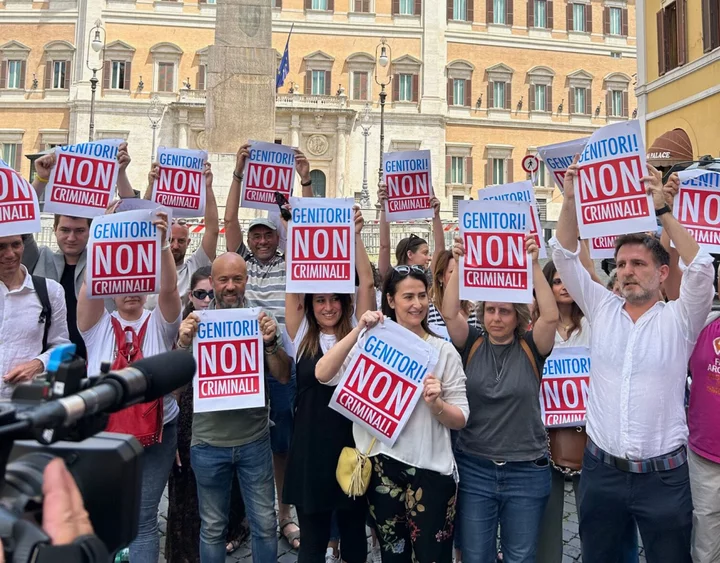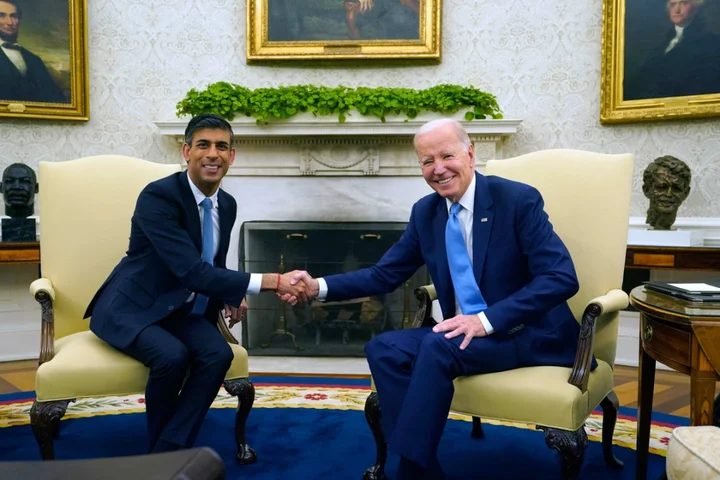Italian lawmakers on Monday began debating a divisive proposal to criminalize surrogacies arranged abroad as Prime Minister Giorgia Meloni’s ruling coalition ramps up efforts to impose its socially conservative agenda.
Couples found guilty of trying to have children through surrogates living overseas face three months to two years in prison and a fine of €600,000 to €1 million under the draft bill, which was submitted by Carolina Varchi, a member of Meloni’s Brothers of Italy party.
‘DL Varchi,’ as the proposal is known, is likely to eventually become law. The ruling right-wing coalition holds an outright majority in both the lower house and the Senate and left-wing parties are unlikely to put up much of a fight.
Many countries severely restrict or outlaw surrogacy but lawyers say the proposal is unprecedented. “There are no countries in which surrogacy is prosecuted if done legally abroad, Italy’s proposal is a unique first,” said Alexander Schuster, a lawyer specialized in LGBTQ issues. “There are instances in which crimes are persecuted also if done abroad, but this is usually only for universal crimes, like pedophilia, or crimes against a state, or sexual tourism.”
Surrogacy has been illegal in Italy, home to the Vatican, for some 20 years. Couples hoping start a family this way typically arrange births in places like the US and Canada where it is legal for non residents. Although there’s no official data on how many babies are born to Italians via surrogates, campaign groups estimate that they number a few hundred a year and say that heterosexual couples with fertility issues use surrogacy most.
Meloni was an outspoken critic of the practice already before becoming prime minister in September, labeling it an “abomination” that promotes “pro-creative tourism.” Its criminalization could further stigmatize LGBTQ people, many of whose children are also born this way and whose rights are eroding under the new government.
Left-wing parties are struggling to come up with a single counter-voice. Democratic Party leader Elly Schlein has said that while she is in favor of surrogacy, the fate of the proposal is in the hands of lawmakers. Members of Matteo Renzi’s Italia Viva have said they do not back the practice. Riccardo Magi of the smaller Piu Europa party says he has presented a counter-draft bill — which is unlikely to gain much traction.
Wider society is also divided. About 40% of Italians back the use of surrogacy for all couples, according to a poll by Quorum/YouTrend in March. Another 15% said they would limit it to heterosexual couples and 27% said they are against the practice entirely. The same survey pointed to a generational split, with younger people more open to the idea.
Surrogacy was thrust into the national spotlight earlier this year when Meloni’s government instructed city mayors to comply with a court ruling and stop certifying the foreign birth certificates for same-sex couples who use surrogacy, leaving some families in legal limbo.
“If this law passes, it will be very hard for gay couples to go to countries where surrogacy is carried out in an ethical form,” said Tommaso Giartosio, who has been married for 25 years and whose two teenage children were born in California through surrogacy. “Formally this will be prohibited also for straight couples, but in fact they will be able to continue to do it, they just will not say they will do it.”
Although the law would likely be unconstitutional, trying to get it overturned could take years and there are likely to be hundreds of cases that will have to be resolved in court, lawyers say.









